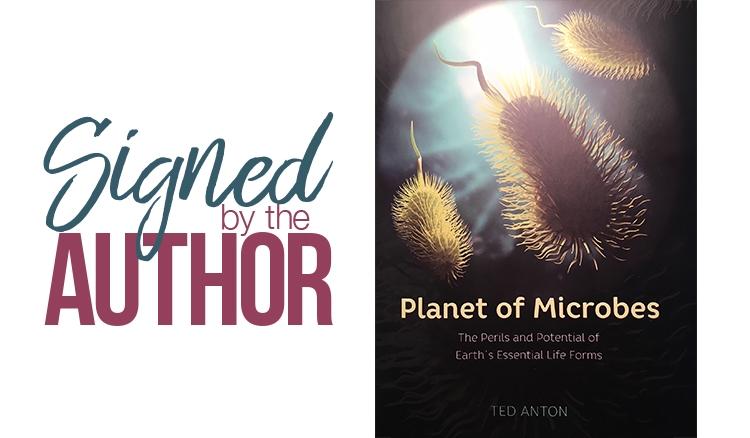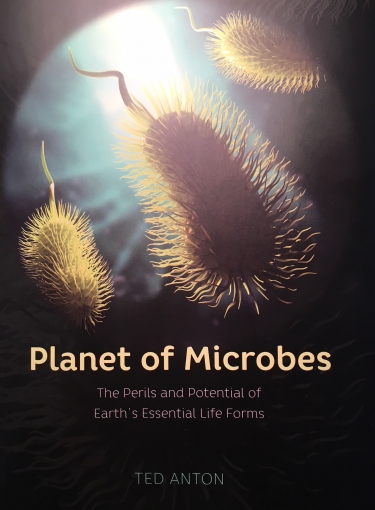 (DePaul University/Jeff Carrion)
(DePaul University/Jeff Carrion)
By: Ted Anton, Department of English
"Planet of Microbes: The Perils and Potential of Earth's Essential Life Forms" is a journey through the curious and wonderful science of Earth's smallest life forms, revealing their unexpected potential to reshape the future of the planet. Earth's microbial hordes are its dominant life forms. The book's detailing of a realm that spans the mammalian gut, the International Space Station and the ocean floor is a rich one, revealing telling clues to our origin, our health and environmental sustainability.
What's the most surprising thing you learned while writing this book? (Image courtesy of University of Chicago Press)
(Image courtesy of University of Chicago Press)
I learned that cousins of the same ancient microbes in Earth's most extreme environments live also in our bodies, and shape our health and mood in profound ways.
Persuade someone to read your book in less than 50 words:
We live in a Golden Age of discovery about origins of microbes and their capabilities. They created the air we breathe and the chemical processes, like metabolism and photosynthesis, on which our lives depend. They are the world's best chemists. This books helps you learn how the smallest organisms may help us solve some of our biggest problems.
About the author:
Ted Anton, a professor English at DePaul, received an MFA from the Iowa Writers Workshop and a Masters in professional journalism from the University of Iowa. He is the author of four books, and the co-editor of one book. He has written for journals like Slate, Publishers Weekly and Chicago. He has won a Carl Sandburg Award in Nonfiction and was nominated for a national book award from Investigative Writers and Editors.
Publisher, publication date, length:
University of Chicago Press, November 2017, 280 pages
Signed by the Author allows DePaul faculty and staff to introduce their recently published or upcoming book or chapter to the university community. To submit your book or chapter for consideration, contact Newsline.